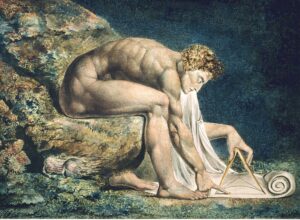University of Oxford-University of Warwick
Scientific and Technological Imaginaries in Italian Literature and Culture
Taylorian Main Hall, Taylorian Institution Library, Oxford
2 December 2023
Keynote Speaker: Prof. Fabio Camilletti (University of Warwick)
This year SIS PGR Colloquium aims to explore the influence that scientific and technological imaginaries have had on Italian culture from the Middle Ages to contemporary times. From Dante’s use of medieval scientific theories in the Comedia and Leonardo’s camera obscura, to the nineteenth-century writers’ engagement with the work of contemporary scientists investigating the working of the mind, to Artificial Intelligence and the way in which technology has shaped and, indeed, revolutionised filmmaking, science and technology have pervaded Italian cultural products. The Colloquium intends to investigate the ways in which scientific and technological knowledge and imaginaries have been mediated, transformed, and elaborated in literary texts, plays, films, and, broadly, visual culture.

William Blake Newton (Wikimedia Commons)
Engaging with scholars researching across a variety of disciplines, contexts, and time periods, this Colloquium will be a collaborative opportunity to propose a series of questions including but not limited to: How does literature relate to science and technology (and vice versa)? How has this relationship changed over time? In which ways have literature and visual arts conveyed scientific dissemination? How have scientific and technological imaginaries influenced the construction of plots, characters, and places in fictional texts, plays, and films? How have science and technology contributed to shaping the epistemic status of literature (and its shifts over time)? The Colloquium aims at examining and discussing the effects of scientific and technological thought and fantasies from a variety of disciplinary perspectives, such as literary studies, cultural studies, history of art, film and television studies, media studies, history of science, medicine, technology, and psychology.
We invite proposals for 20-minute papers with different methodological approaches and temporal focuses.
Topics may include but are not restricted to:
– Literature and Science;
– Science Fiction;
– Ecocriticism;
– The Literary in Science;
– Technology and Italian Media (production and representation);
– Digital Turn in Italian Studies;
– Scientific Imaginaries in Italian Literature and Cinema;
– Technology and Labour in Italian Culture;
– Posthumanism;
– Artificial Intelligence in Cultural Representation;
Postgraduate students, doctoral students, and early career researchers in Italian Studies departments in the UK, Ireland, and abroad are highly encouraged to send their proposals. Proposals from postgraduate students and PhD candidates who are not based in Italian Studies departments and who are working on Italian-related topics are also very welcome. Six small travel grants (two of £100 and four of £50) will be awarded to postgraduate students who are not benefitting from the financial support of full scholarships. Those interested in presenting a paper should send a short abstract (max. 250 words) and a biographical note (max. 150 words) to Frances Clemente (frances.clemente@pmb.ox.ac.uk), Gennaro Ambrosino (gennaro.ambrosino@warwick.ac.uk), and Jacopo Francesco Mascoli (jacopo-francesco.mascoli@warwick.ac.uk) by 20 September 2023.
The submission is open to registered SIS members who have paid the membership fee.
Contributors may be invited to publish an article based on the papers they presented at the Colloquium in the peer-reviewed journal Notes on Italian Studies.
Publication timeline: Abstracts deadline: 20 September 2023
Notification of acceptance: 30 September 2023
Date of Colloquium: 2 December 2023
